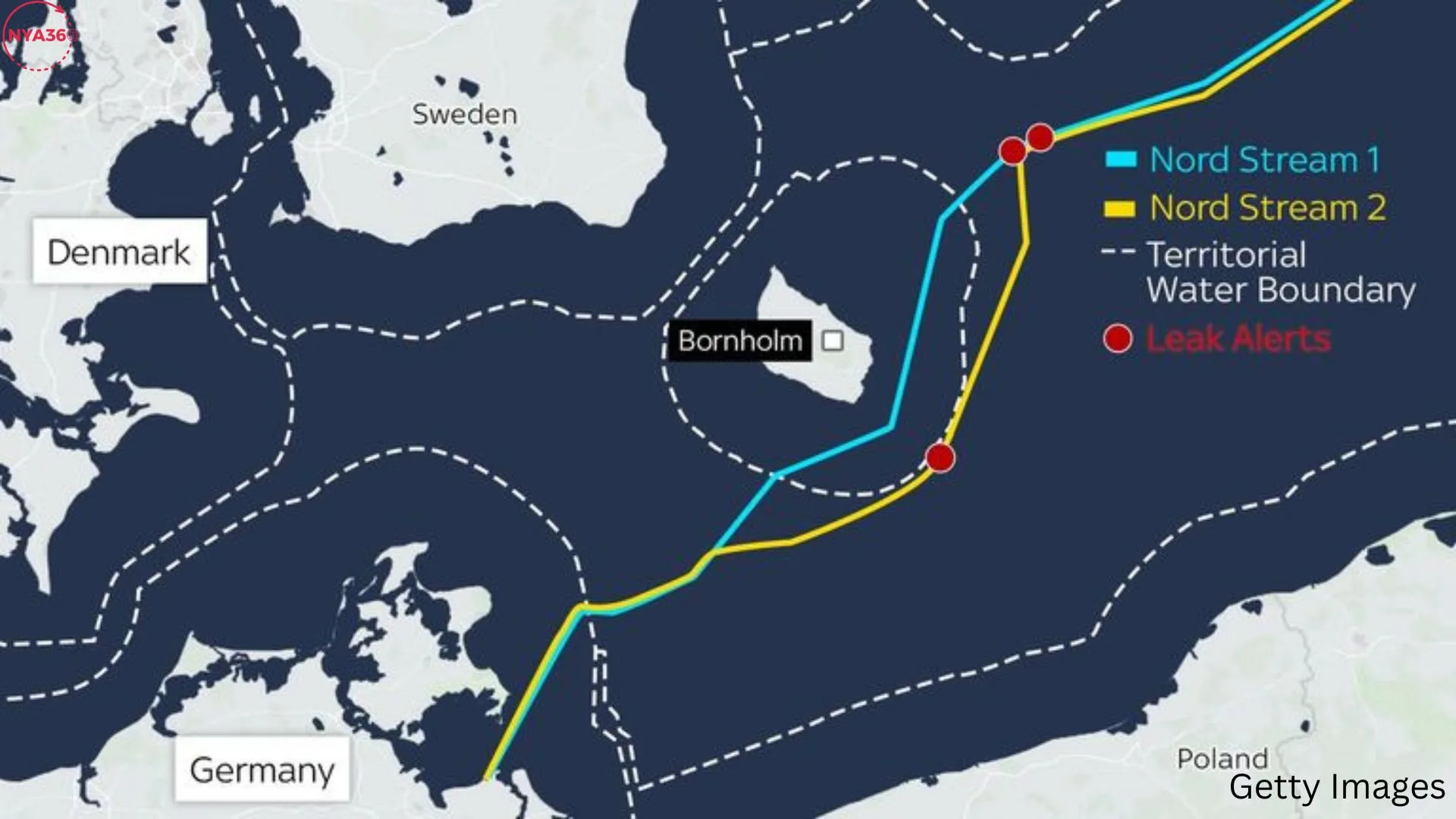Germany has issued a European arrest order for a Ukrainian diving teacher who is accused of being a significant participant in the destruction of the Nord Stream gas pipelines in September 2022. This notable advancement comes after a thorough inquiry conducted by German police, who assert that the individual in question was a member of a group accountable for placing explosive devices on the pipelines that go from Russia to Germany beneath the Baltic Sea. The issuance of the arrest warrant is a crucial milestone in the process of revealing the factual details of the attack, which has been the focus of extensive conjecture and geopolitical strain since its occurrence.
The unidentified Ukrainian diving instructor is thought to have resided in Poland during the incident. According to reports, German authorities have collected evidence indicating that the suspect was among the divers responsible for placing the explosive devices that caused significant damage to the pipelines, resulting in extensive interruption to Europe’s energy supplies. The Nord Stream pipelines are an essential component of the energy infrastructure responsible for transporting natural gas from Russia to Germany and other regions of Europe. Therefore, the attack on these pipelines is a topic of significant international concern.
The German prosecutor general’s office has not disclosed additional information regarding the investigation or the present location of the suspect. Germany formally solicited Poland’s aid in apprehending the individual in June 2023, as per reports. The issuing of the arrest warrant demonstrates Germany’s resolve to hold accountable those who are responsible for the act of sabotage and to untangle the intricate network of geopolitical scheming associated with the incident.
The Nord Stream pipeline’s destruction had significant and wide-ranging ramifications, both in terms of the economy and politics. The explosions caused a substantial disturbance to Europe’s energy provision during a period when the continent was already dealing with the economic consequences of the COVID-19 pandemic and the ongoing conflict in Ukraine. The assault worsened the energy crisis in Europe, resulting in a significant increase in gas prices and heightened apprehensions regarding energy security.

The geopolitical consequences of the sabotage were as significant. At first, the incident caused a rapid and intense exchange of allegations and counter-accusations among the persons concerned. Western nations, particularly the United States, promptly proposed the possibility that Russia could be responsible for the attack, despite the irrational idea that Russia would deliberately damage its infrastructure. This narrative received extensive coverage in the media, with certain analysts conjecturing that Russia’s activities were a component of a more comprehensive plan aimed at applying pressure on Europe in light of the ongoing conflict in Ukraine.
Nevertheless, as the inquiry progressed, alternative hypotheses started to surface. Several commentators have suggested the potential of a false-flag operation, where another entity, such as Ukraine or a Western intelligence agency, could have carried out the attack to falsely implicate Russia and increase its international isolation. The issuing of the arrest order for the Ukrainian diver supports the assumption that Ukrainian operatives, potentially with outside assistance, were implicated in the act of sabotage.
The Biden administration’s initial claims attributing the Nord Stream explosions to Russia are being questioned in light of the following events. Critics contend that the hasty attribution of guilt to Russia, in the absence of tangible evidence, was driven by political motives and intended to strengthen backing for Ukraine in its confrontation with Russia. The recent disclosures indicate that the situation might have been more intricate, with Ukraine potentially being directly involved in the act of sabotage.
The shift in the narrative is noteworthy since it prompts inquiries regarding the openness and intentions of Western governments in their management of the disaster. Suppose Ukrainian operators were truly responsible for the attack. In that case, it has the potential to complicate the Western countries’ backing of Ukraine and put a strain on the relationship between Kyiv and its European partners. Furthermore, it has the potential to prompt a reevaluation of the tactics utilized by Western countries in their attempts to combat Russian influence in Europe.
The current German investigation into the explosions at Nord Stream is expected to reach a critical juncture with the issuance of an arrest warrant for the Ukrainian diver. This development is likely to play a crucial role in determining responsibility for the incidents. If the suspect is captured and prosecuted, it has the potential to reveal information about the larger network implicated in the act of sabotage and offer insight into the genuine reasons behind the attack.
The occurrence highlights the significance of a comprehensive and unbiased inquiry to establish the truth and ensure that those who are involved are held liable. Furthermore, it underscores the intricate and frequently ambiguous character of global affairs, in which geopolitical interests can occasionally take precedence over the quest for truth and justice.
As the inquiry advances, Germany and its allies must maintain their dedication to exposing the truth, regardless of its potential outcomes. The explosions at Nord Stream were both an assault on vital infrastructure and a blow to the fundamental ideals of international law and collaboration. Ensuring that the individuals responsible for the wrongdoing are held accountable is crucial for rebuilding confidence and maintaining stability in a society that is becoming more characterized by unpredictability and strife.
Follow us on social media: Instagram, Threads & Twitter X @nya360_ YouTube & Facebook @nya360.





